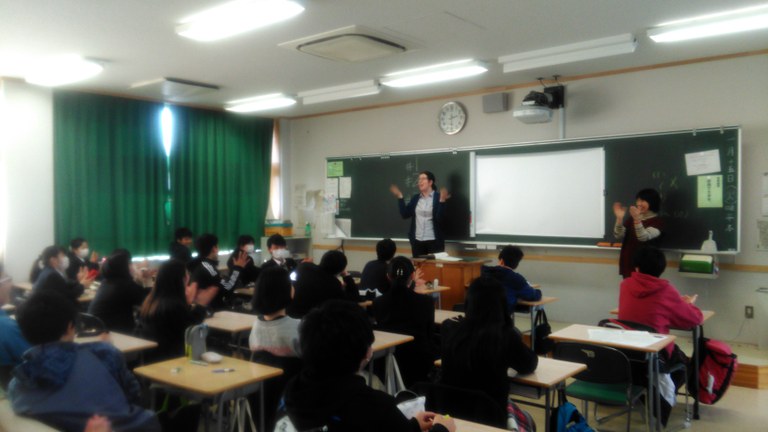Meet alumni Irene Yates

Please give us a brief career update- what have you accomplished after graduation?
Before graduation I applied to and was accepted into the JET Program, a Japanese government program that recruits native English speakers to work as assistant language teachers in Japanese schools. Immediately after graduating, I moved to a suburb of Tokyo where I now teach English at a public high school.
How has your Anthropological training at UofL helped you achieve your career goals?
At UofL, I learned skills that have enabled me to adapt to my work environment. My current career path is a bit unconventional, as my focus of study, with the guidance of Dr. Julie Peteet, was forced migration and Muslim charity. However, my fieldwork training taught me effective observation and to question my assumptions, skills that I use every day in the classroom and office. I also had the good fortune of working as a graduate teaching assistant with Dr. Angela Storey, who helped me to become more confident in presenting ideas in a classroom setting. Currently, one of my responsibilities is to introduce diverse perspectives to students and encourage them to think critically, learning objectives that mirror introductory anthropology courses.
Tell us about memorable moments/events of your graduate life at UofL?
Most of the most memorable moments of my graduate life at UofL happened outside of the classroom – intense theory discussions and light department gossip in the computer room or at AGSA meetings, visits from dogs during the rush to grade final exams, chatting about the future of refugees in Kentucky over a generous plate of Bosnian chevapi. These small things made my graduate experience special.
Any advice to fellow Anthropology students at UofL?
Graduate school is a great time to network and learn outside of class. It’s difficult because of how busy school and family and work can keep you, but try to make time to use university resources while you have access to them. Go to special lectures. Attend AGSA meetings. If you read an interesting article, e-mail the author. Submit conference abstracts. Just because it doesn’t get you a grade doesn’t mean it’s a waste of time! That includes making time for resting and taking care of yourself.
How is Japan treating you, and how can we contact you?
West Tokyo is great. You can be in downtown Tokyo in an hour by train in one direction or out in the mountains in a tiny village in an hour in the other direction. The best thing about the winter is that you can often see the top of Mt. Fuji from the train station! My husband and I are still enjoying spending weekends wandering around different neighborhoods. Japanese is hard, but we’re doing our best to learn at the local community center. We meet a lot of other migrant workers there, too.
People can contact me on this e-mail: irenelevyyates@gmail.com.
